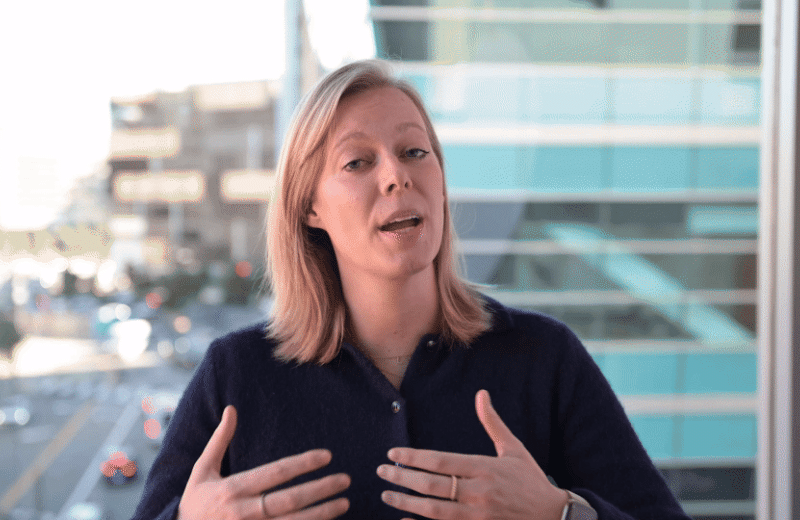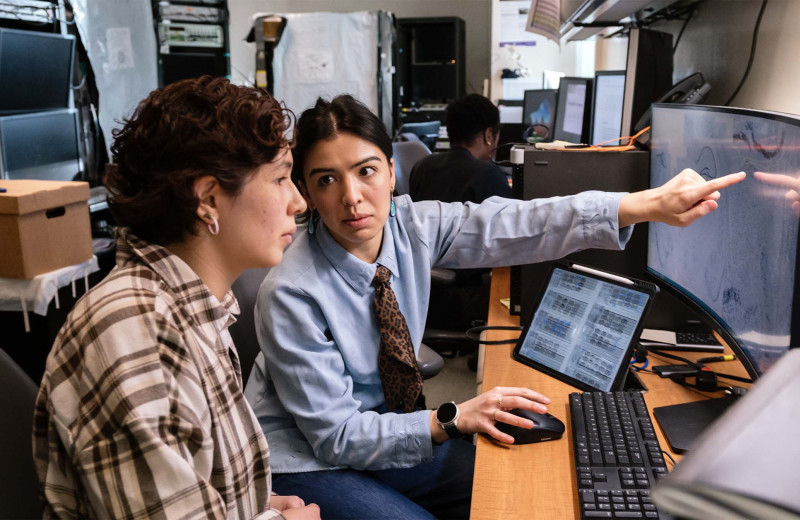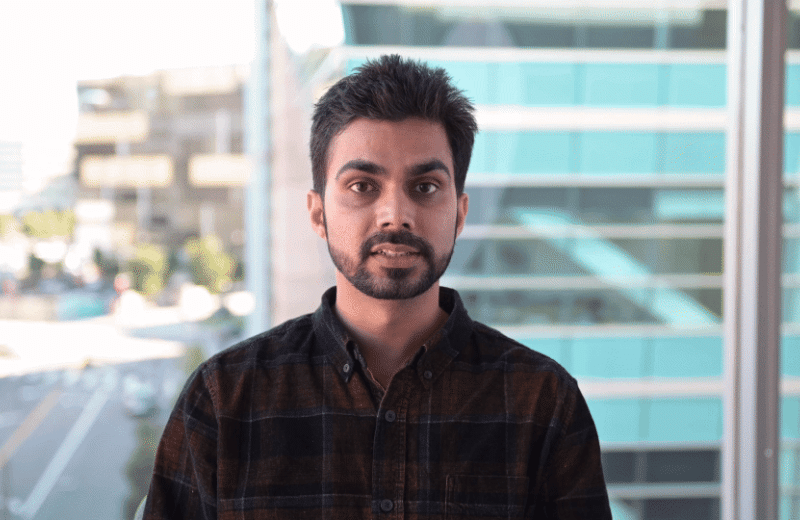Gladstone NOW: The Campaign Join Us on the Journey✕

A native of India with an electrical engineering degree from the Indian Institute of Technology in Madras, Sam Perli fell in love with biology while at MIT for a Master’s in computer science, and ended up developing CRISPR-based tools to engineer human cells for his PhD.
What brought you to Gladstone?
I came to Gladstone to work with Senior Investigator Shinya Yamanaka, MD, PhD. Close to finishing my PhD, I met Shinya in Japan, and he invited me to work with him at Gladstone.
What do you like about Gladstone?
Gladstone has great leadership and is progressive. I like that we are always thinking about “What’s next and how can we create it?” The Transgenic Core at Gladstone is one of the best in the country. And by the way, Gladstone is located in San Francisco. Nothing can beat that.
Were you interested in science as a child?
Yes, I have always been interested in science. However in school, biology was my least favorite subject as it was not taught as a logical discipline. I had to memorize human anatomy and the structure of different organs without learning why such structures exist in the first place. On the other hand, math and physics were taught with logic and I could find their applications in daily experience. As a child, I took apart and put together every machine I came across and built my own versions of elevators, traffic control systems, and helicopters. When I came across molecular biology in graduate school, I became impressed by how biology can be as much a digital science as computer science. Everything that happens in a cell is driven by its DNA, just as a computer is driven by its source code. This got me hooked on biology!
Why did you decide to go to graduate school?
I wanted to innovate and work on fundamental principles of science and engineering to build systems that make human lives better. I wanted to be behind a revolution that transforms our lives just as the internet did. Graduate school was a natural choice.
Can you describe your current research project?
The central dogma of biology is that protein is made from RNA, which is made from DNA. How proteins are made is less understood than how RNA is made. I am researching how cells actually make protein. How is this process, also known as translation, controlled? I have discovered that a protein that controls translation is also crucial for induced pluripotent stem (iPS) cells to retain their ability to turn into all kinds of different cell types. This finding sheds new light on the biology of these very important cells, which were discovered by my supervisor, Shinya Yamanaka, and are used for biomedical research in labs all over the world.
What or who influenced your decision to work in science?
The discovery that adult human cells can be reprogrammed into pluripotent stem cells is truly paradigm changer. I was a computer scientist when I first read Shinya’s work on reprogramming and I was impressed by how programmable human cells are, much like computers. I formed a strong desire to investigate how one can program cells and delineate the principles that govern cell identity—what makes a cell become a neuron versus a heart or liver cell, for instance. I am thrilled to be currently working with Shinya.
What do you do when you are not working?
I have too many loves and I often find that I lack the time to be engaged in all of them. Outside the lab, I play squash, badminton, volleyball, and the guitar. I am also a licensed and ordained minister and preach on many topics, including the intersection of science and faith.
If you could learn to do anything, what would it be?
I would love to fly, just like a bird!
What is your hidden/unique talent?
I am gifted at memorizing long stretches of prose—this helps me quite a bit in my preaching!
Name one thing that not many people know about you.
I can muster conversational Chinese and have learned about 400 Chinese characters.
If you could meet any scientist from any point in time, who would it be and why?
Sir Isaac Newton. I am impressed by how he developed a mathematical framework (calculus, derivatives) to explain everyday phenomena, such as the motion of objects and planetary bodies. I want to know how he would approach current questions, such as the Big Bang or aging.
Want to Join the Team?
Our people are our most important asset. We offer a wide array of career opportunities both in our administrative offices and in our labs.
Explore CareersMeet Gladstone: Alisa Dietl
Meet Gladstone: Alisa Dietl
Alisa Dietl brings her international training and clinical perspective to Gladstone, where she works to engineer more effective cancer immunotherapies for solid tumors.
Graduate Students and Postdocs Profile Cancer Pelka LabVoices of Outstanding Mentorship
Voices of Outstanding Mentorship
Three recipients of Gladstone’s Outstanding Mentoring Award share their personal approaches to mentorship and reflect how this passion has shaped their own growth as leaders.
Profile Roan Lab Graduate Students and PostdocsMeet Gladstone: Shyam Jinagal
Meet Gladstone: Shyam Jinagal
Shyam Jinagal explores how genetics, aging, and regeneration shape the heart—and how those insights could one day restore heart function after injury.
Graduate Students and Postdocs Profile Cardiovascular Disease Srivastava Lab



